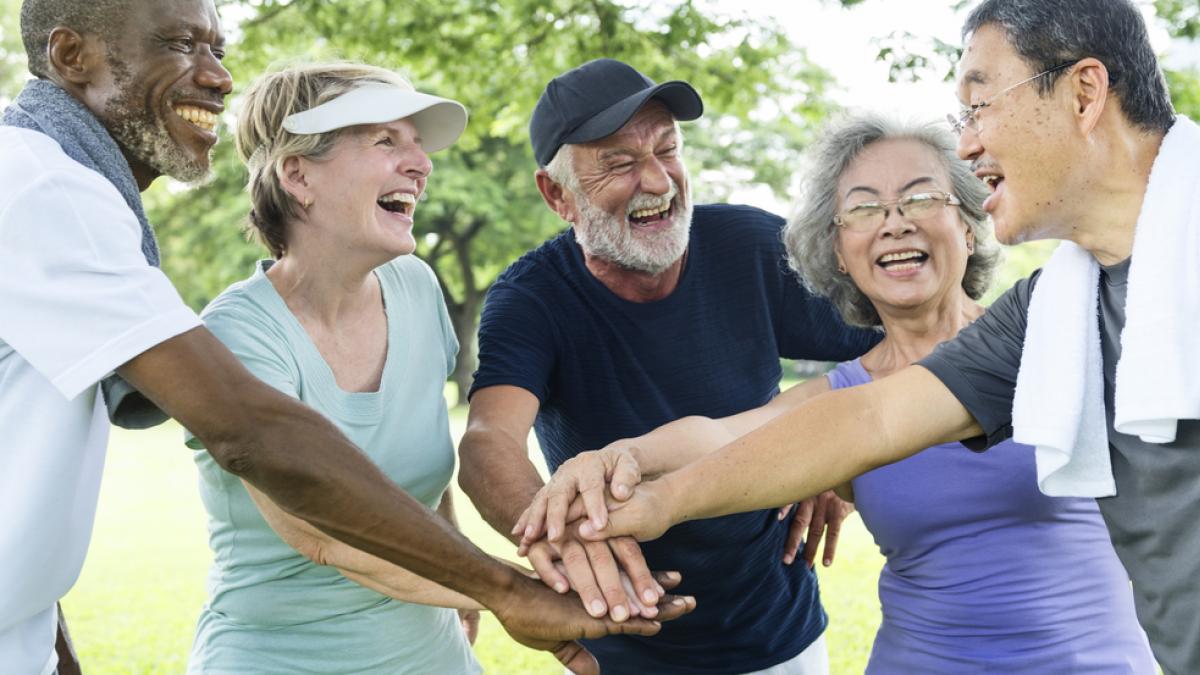Advice on how to stay healthy and active from 50 to 60+

Keeping active as we get older is vital if we are to remain healthy and independent.
Use it or lose it, so the saying goes.
Your body changes as you grow older and it's vital to keep active if you want to stay healthy and independent. Otherwise, much of what you enjoy – perhaps gardening, playing golf or simply getting out and about – becomes that much harder. Physiotherapy can help you to deal with many of the problems you might experience as time goes on.
Bones and muscles
Over the years, bones tend to lose their density, making them more prone to injury, particularly if the bone-thinning condition called osteoporosis develops. Muscles might also lose some of their strength and flexibility, which could lead to problems with moving about, and particularly with balance. But the good news is that by following some simple, healthy living advice about exercise and diet you can help keep your bones, joints and muscles strong and healthy.
Heart
As you age, your heart rate might slow or your heart could become enlarged, making it harder for it to function well. At the same time, changes to blood vessels can lead to raised blood pressure and other conditions. Again, by keeping active and eating a healthy nutritious diet, low in salt and saturated fat, you can help to avoid, or at least minimise, these problems - and continue to lead a full independent life into older age.
Weight
It's important to avoid being overweight at any age. As you grow older though, changes in the way your body deals with food, together with a less active lifestyle, might make weight gain more likely. This can place extra strain on your bones, muscles and heart and could also put you at risk of conditions such as Type 2 diabetes. By keeping physically active and following a low-fat diet, however, you can lose weight if you need to and also ensure that you stay fit and in good shape.
How can I help myself?
Fortunately, one of the most important things you can do is also one of the simplest: make regular physical activity part of your daily routine. Regular exercise helps maintain a healthy weight. It promotes strong bones and muscles and flexible joints. It also lowers your blood pressure and helps keep your arteries in good shape, contributing to a healthy heart and good circulation.
And the benefits are not just physical: keeping active also helps to combat anxiety, depression and isolation, particularly activities that involve other people, such as dancing, golf or bowls. Exercise helps you sleep, and also keeps the brain more alert – all necessary for the processes that your body has to deal with day to day, such as healing, learning and using your memory.
Other advice
- Follow a healthy diet, low on salt and sugar, processed foods and saturated fat, and high on fresh fruit and vegetables. Keep yourself hydrated by drinking plenty of water.
- Don't smoke – if you need help with giving up, ask your GP
- Have regular health checks – again, ask for these through your GP
- Keep in touch with friends and maintain an active social life
- Get a good night's sleep
How can physiotherapy help?
Your physiotherapist can help you to deal with some of the problems that might arise as time goes on. For example, they can:
- Advise on a healthy lifestyle that will best fit your routine and help keep you in good physical condition as you grow older
- Suggest the right exercise to promote strong bones and improve your balance and muscle strength – falls are the biggest cause of hospital admissions for older people
- Teach you how to get up after a fall
- Get you back on your feet after a knee or hip replacement for arthritis.
- Help you to regain movement and use in an arm or leg after breaking a bone
- Ease common pains – such as in your shoulders, neck, hip and back –helping to restore your mobility
- Help you to recover from a stroke or a heart attack
- Help you to manage new conditions that might develop, particularly those that will affect your life over a long period, such as arthritis, diabetes and neurological conditions such as Parkinson’s.
- Reduce breathlessness and teach you how to move to save energy if this is needed.
Top Tips
Here are just a few tips and ideas on how to stay active:
- Join a club that involves activities such as walking (see www.walkingforhealth.org.uk) tennis, golf, dancing or cycling. If you have a specific medical condition, see if there is a local support group you can join
- Go swimming regularly
- Join a Pilates or yoga class to help maintain muscle strength and flexibility, and to maintain some social contact. Ask your GP or physiotherapist or enquire at your local library.
- Know what you can do to help avoid a fall (see Avoiding Trips and Falls at Home)
- Know what you can do to stay independent (see Staying Independent)
Links and further information
General health and fitness
- NHS Choices on men's health 60+
- NHS Choices on women's health 60+
- Age UK on top 10 tips for better ageing
Physical activity
- NHS Choices on the importance of exercise as you get older
- Find a Walking For Health group near you
- AGE UK on keeping fit
DISCLAIMER: Physical activity should not cause any harm. If you do experience any pain or discomfort, stop immediately and speak to a health professional such as a chartered physiotherapist or your GP.